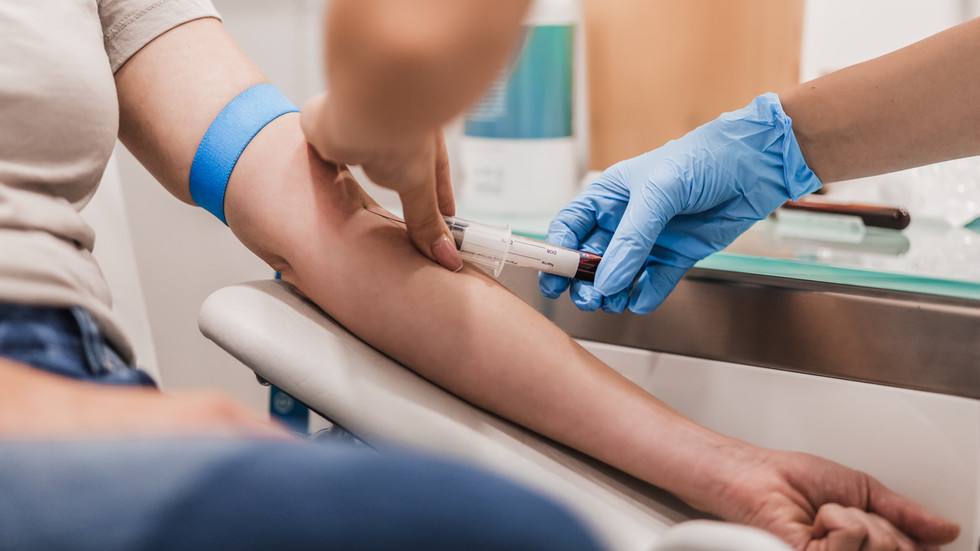With more than 36,000 civilian deaths recorded in conflict zones in 2024 and sexual violence surging, senior UN officials warn that the international framework designed to protect civilians is collapsing.
Speaking at a high-level open debate in the Security Council on protection of civilians in armed conflict on Thursday, UN Emergency Relief Coordinator Tom Fletcher described a grim picture of accelerating harm, disintegrating norms and growing impunity.
“The scaffolding built last century to protect us from inhumanity is crumbling,” he said.
“Those who will die as a result need us to act.”
Chilling numbers
According to UN figures, civilians accounted for most of the deaths in 14 armed conflicts last year, while displacement reached a record 122 million people globally.
Attacks on hospitals, schools, water systems and power grids also surged, leaving millions without essential services.
UN staff members and aid workers were caught in the crossfire, with over 360 aid workers killed – at least 200 in Gaza and at least 54 in Sudan – mostly national staff.
Warfare transforming
Mr. Fletcher warned that new technologies, including artificial intelligence (AI), are transforming warfare in ways that could further erode human oversight and legal accountability, while proliferation of misinformation is costing lives.
“False narratives and disinformation have undermined humanitarian operations and eroded trust in humanitarian actors…while those trying to report on the plight of civilians were also harmed,” he said.
According to UNESCO, the UN focal agency on protection of the press, at least 53 journalists were killed in armed conflict last year.
“We are witnessing, therefore, an unravelling of the protection of civilians and respect for international humanitarian law.”
Women’s bodies are battlegrounds
UN Women Executive Director Sima Bahous expanded on the gendered dimensions of civilian harm, saying over 612 million women and girls are living in conflict zones today.
They are not simply collateral damage but direct targets of bombs, missiles and policies.
“Conflict-related sexual violence is a protection crisis that warrants its own attention,” she said, describing a growing pattern of “reproductive violence” and pointing to blockades on medical supplies, bombed maternity wards and skyrocketing maternal death.
In Gaza, over 28,000 women and girls have been killed since October 2023 – an average of one every hour, she said.
“Tens of thousands have given birth under bombardment and siege, without anaesthetics, without postpartum care or clean water, and while being malnourished, displaced and traumatised.”

© UNRWA
Destruction in northern Gaza.
Hold perpetrators accountable
Ms. Bahous urged the Security Council to recognise reproductive violence as a distinct category of harm and bring those responsible to justice.
She also highlighted the mental health impacts of conflict on women and girls – from depression and trauma to domestic violence and suicidal thoughts.
The threats extend into the digital sphere, where women activists and journalists are being pushed out of public life by online abuse, deepfakes and disinformation campaigns.
Enforce compliance with law
Both Mr. Fletcher and Ms. Bahous called for urgent action.
UN Member States must enforce compliance with international humanitarian law, fight impunity, and empower civilians – especially women – as agents of their own protection and bringing change.
Mr. Fletcher emphasised that even lawful military actions can cause disproportionate civilian suffering.
“[We need a] more comprehensive and people-centred approach,” he said, urging strong policy and operational measures to protect civilians and a deeper understanding of patterns of life and harm.

© UNICEF/Minzayar Oo
A child who lost his left leg after accidentally stepping on a landmine in his family's paddy fields in central Myanmar.
Protection and peace inseparable
Recalling Security Council resolution 1325 on women, peace and security, Ms. Bahous called for sustained investment in women’s organizations, which are on the frontlines – protecting civilians – men, women, children and the elderly alike.
“Yet, they are under siege,” she said, noting that continued funding cuts will cost us the very women driving peace and recovery in the world’s most fragile contexts.
She concluded stressing that protection of women and their participation in peace “are inseparable”.
“The most effective shield we can offer women and girls is their own power, their own voices, and their own leadership…there is no pathway to peace that does not begin with the protection of women and girls.”
Where next?
Latest news
Read the latest news stories:
- How Computational Biology Is Zoning in on the Future of Agriculture Thursday, May 22, 2025
- Global Push to Protect Oceans Gains Momentum Ahead of UN Conference in Nice Thursday, May 22, 2025
- The #ChurchToo Movement: A Wake-Up Call for the Modern Church Thursday, May 22, 2025
- Using AI as an Ally: What the latest UNDP Human Development Report Means for Latin America, Caribbean Thursday, May 22, 2025
- HeForShe Campaign Tackles 'Sex for Fish' Abuse Malawis Lakeshore Communities Thursday, May 22, 2025
- The True Cost of America's Retreat: How USAID Cuts Threaten Millions of Lives Thursday, May 22, 2025
- UN Reform – Once Again? Thursday, May 22, 2025
- World News in Brief: UK cedes sovereignty over Chagos Islands, suffering in Sudan deepens, UN releases new emergency relief funds Thursday, May 22, 2025
- Civilians ‘trapped and terrorised’: UN sounds alarm over collapse of critical protections Thursday, May 22, 2025
- Gaza: Strikes on houses and tents responsible for over half of deaths this week Thursday, May 22, 2025
Link to this page from your site/blog
Add the following HTML code to your page:
<p><a href="https://www.globalissues.org/news/2025/05/22/39940">Civilians ‘trapped and terrorised’: UN sounds alarm over collapse of critical protections</a>, <cite>Inter Press Service</cite>, Thursday, May 22, 2025 (posted by Global Issues)</p>… to produce this:
Civilians ‘trapped and terrorised’: UN sounds alarm over collapse of critical protections, Inter Press Service, Thursday, May 22, 2025 (posted by Global Issues)

 1 month ago
11
1 month ago
11
![35-year-old American moved to Chengdu and lives on $30,000 a year: '[It's] poverty in America, but in China I'm living large'](https://image.cnbcfm.com/api/v1/image/108167583-1751548516689-chinacelia1.jpg?v=1751549197&w=1920&h=1080)









 English (US) ·
English (US) ·